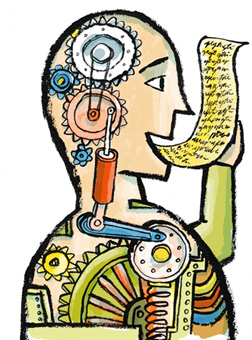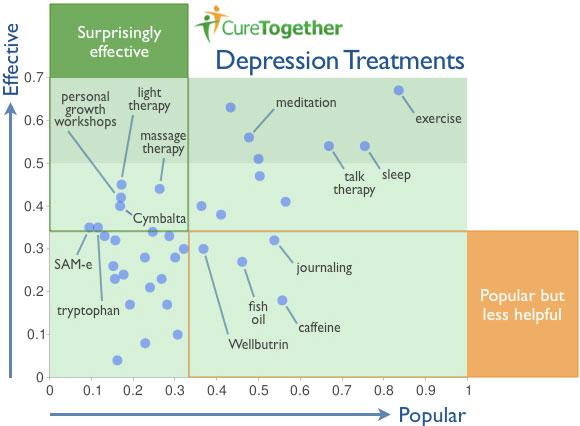How long did it take you to get to work today? How long did it take you to get to work on this day last week? How long, on average, did it take you to get to work this month? My guess is that you have a rough idea but not the precise number. We tend to underestimate the length of our journey, since everyone likes to think they have a "short commute." Yet we may lose some measure of happiness because of this self-deception.
The Swiss economists Bruno Frey and Alois Stutzer argue that people do not appreciate the real cost of a long commute. And especially when that commute is unpredictable, it takes a toll on our daily well-being.
Now, imagine if we shared our commuting information so that we could calculate the average commute from various locations around a city. When the growing family of four pulls up to a house for sale for in New Jersey, the listing would indicate not only the price and the number of bathrooms but also the rush-hour commute time to Midtown Manhattan. That would be valuable information to have, since buyers could realistically factor the tradeoffs of remaining in a smaller space closer to work against moving to a larger space and taking on a longer commute.
In a cover story for the New York Times Magazine, the writer Gary Wolf documented the followers of “The Data-Driven Life,” programmers, students, and self-described geeks who track various aspects of their lives. Seth Roberts does a daily math exercise to measure small changes in his mental acuity. Kiel Gilleade is a "Body Blogger" who shares his heart rate via Twitter. On the more extreme end, Mark Carranza has a searchable database of every idea he's had since 1984.
They're not alone. This community continues to thrive, and its efforts are chronicled at a blog called the Quantified Self, co-founded by Wolf and Kevin Kelly. These folks represent the vanguard of an activity that appears a little nerdy and more than a little OCD, but one that will soon be second nature. If you've ever asked Nike+ to log your runs or given Google permission to keep your search history, you've participated in a bit of self-tracking. Now that more people have location-aware smartphones and the Web has made data easy to share, personal data is poised to become an important tool to understand how we live, and how we all might live better.
One great example of this phenomenon in action is the site Cure Together, which allows you to enter your symptoms—for, say, "anxiety" or "insomnia"—and the various remedies you've tried to feel better. One thing the site does is aggregate this information and present the results in chart form. Here is the chart for depression:
Instead of being isolated in your own condition, you can now see what has worked for others. The same principle is at work at the site Fuelly, where you can "track, share, and compare" your miles per gallon and see how efficient certain makes and models really are.
Businesses are also using data tracking to spur their employees to accomplishing companywide goals: Wal-Mart partnered with Zazengo to help employees track their "personal sustainability" actions such as making a home-cooked meal or buying local produce. The app Rescue Time, which records all of the activity on your computer, gives workers an easy way to account for their time. And that comes in handy when you want to show the boss how efficient telecommuting can be.
These tools are simultaneously cool and useful. They’re also just the beginning; there are countless ways to use data to improve society that we haven’t yet figured out. That’s where you come in. In this Hive, I'm asking Slate readers how we can use data to help us all. The city of Paris, for example, gave residents a watch that recorded noise levels and ozone levels and then mapped the results. The people behind Asthmapolis distribute an attachment to asthma inhalers with built-in GPS, and they are using this technology to help asthma sufferers better understand what sets off their attacks.
Your suggestion could be simply a good idea, a mobile app, or a yet-to-be-invented gadget. For example, Fitbit is a small clip that records such things as your sleeping patterns and how many steps you've taken. The Copenhagen wheel monitors carbon-monoxide levels, traffic, and noise data while you ride your bike. You may also think of a clever way to use existing data. Fabian Neuhaus took all of the geo-located tweets in Moscow and plotted the locales of that city's Internet boom. What about E-ZPass or Amazon purchases or Facebook updates or crime statistics?
During the next month, I'll talk to people who are experimenting with data collection both in their own lives and on a larger scale in fields as diverse as transportation, productivity, and health care. Please share your good ideas here: What are some great ways that we can collect and analyze data to improve our lives?
You can submit your idea from now through Friday, Dec. 3. I’ll be tracking your most interesting ideas throughout the month. And don’t forget to vote on the proposals you like best. In early December, I'll take a closer look at the three top-vote-getting ideas and write about them.
What are some great ways that we can collect and analyze data to improve our lives? The site Cure Together charts what treatments its members have found most effective for combating symptoms like insomnia or anxiety. Roadify lets you know when the bus is really coming based on information shared by others. The Copenhagen wheel monitors carbon-monoxide levels, traffic, and noise data while you ride your bike. These tools are just the beginning; tell us new ways to capture, chart, and share data that will be useful and surprising. You can submit your idea between now and Friday, Dec. 3. I’ll be tracking your most interesting ideas, throughout the month. And don’t forget to vote for the proposals you like best. In early December, I'll take a closer look at the three top vote-getting ideas and write about them.
Monday, November 29, 2010
How should we use data to improve our lives? - By Michael Agger - Slate Magazine
via slate.com
Subscribe to:
Post Comments (Atom)







No comments:
Post a Comment